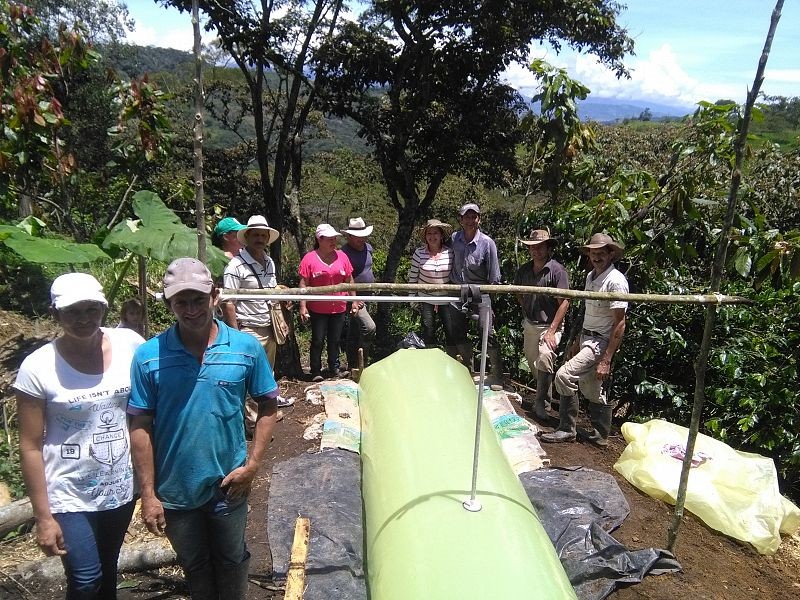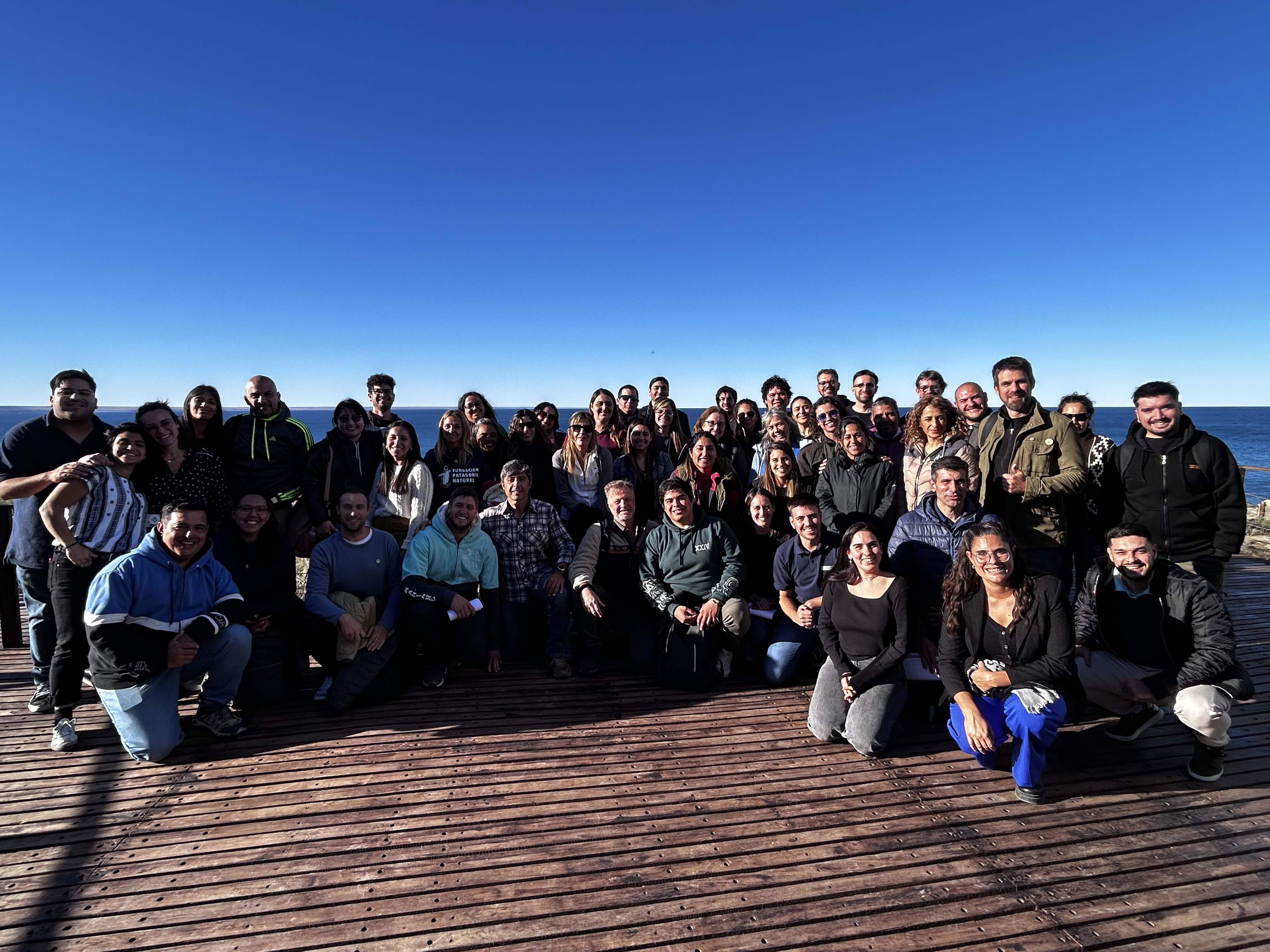More than 45 teachers from 15 schools in Chubut Province, Argentina, participated in the first training to launch our newest capacity building partnership: the YouthEnergy project.
Biogas Generation at Colombian Coffee Farms
One of our recent SEPS projects under the framework of the Colombian Biomass Network – RedBioCOL – aims to make use of the organic waste generated by coffee cultivation and common practices in diversified production processes. Three technologies will be implemented to establish the energy sovereignty of the farmer organisations: gasification-fuelled cookstoves, tubular plug-flow biodigesters and gasification-fuelled coffee dryers.
Construction and implementation activities related to the technologies have recently been carried out at a number of coffee farms. Furthermore, training sessions were run at UTA’s headquarters, during which the input of coffee into a drying unit and the operation of a corresponding biomass gasifier were demonstrated for 6 consecutive hours. This practical display is important because most participating farmer organisations are familiarising themselves with biogas technology for the first time.
Other workshops aimed at disseminating the results of the project among various local and regional actors, as well as targeting university students who have expressed interest in becoming involved in monitoring activities.


